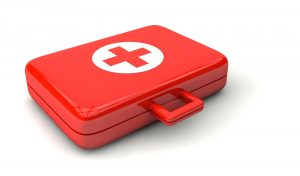 No one wants to be stuck in an emergent situation in their vehicle, but it’s something that can strike at any time. Being prepared is the best way to protect yourself and your passengers, and you can prepare by following a few tips.
No one wants to be stuck in an emergent situation in their vehicle, but it’s something that can strike at any time. Being prepared is the best way to protect yourself and your passengers, and you can prepare by following a few tips.
Pack an Emergency Kit
Every vehicle should contain an emergency kit to use if it becomes stranded somewhere. You may need to use the items in the kit if your car breaks down when you’re outside of a service area or you’re unable to get to where you need to go due to a storm or natural disaster.
The emergency kit in your vehicle should contain jumper cables, an ice scraper, a blanket, a cell phone charger that plugs into your car’s adapter, a reflective triangle or road flares, and a map. If you frequently drive in snow, consider adding some sand or cat litter to your kit, which can help your tires gain better traction in slick conditions.
Have Your Car Checked Often
It’s good practice to get your vehicle checked out before you go on a long car trip, but you should keep up with regular maintenance and care even when you’re not planning a vacation. Get your oil changed as often as is recommended by the manufacturer, have your tires rotated and balanced, and take your vehicle in for maintenance whenever necessary. You can also check the fluid levels, including the oil, washer fluid, brake fluid, and power steering fluid, as well as keep an eye on the tread of the tires.
Avoid Dangerous Situations
Before you leave your house, check the weather in your current area and where you’re going to make sure the conditions are good for driving. You can avoid a potentially dangerous situation by taking a different route or waiting to leave until the conditions have improved. Avoid driving through flooded areas, as even just six inches of standing water can cause you to stall or lose control of your vehicle. If you do have to drive in snow, be prepared with winter tires or snow chains.
Have Food and Water
If you get stranded somewhere, you need to be able to survive until help arrives. Keep a stash of non-perishable food and bottled water in your vehicle, such as crackers, granola bars, or protein bars. You may want to keep some extra warm clothing, including a hat and gloves, in case you’re stuck in your car and the weather turns chilly.
In addition to a supply of food and water, it’s helpful to keep a first-aid kit in your vehicle for emergencies. The kit should contain gauze bandages, regular bandages, absorbent pads, OTC pain relievers, sunscreen, scissors, tweezers, antiseptic wipes or ointment, and burn ointment. If you take any medications regularly, consider keeping a supply of those in your kit as well.
With the right supplies and tools in your vehicle, you can be prepared for an emergency. Hopefully, you never need to use them, but if you do find yourself in an urgent situation, you’ll certainly be glad you had these items readily available.
Image via Pixabay





